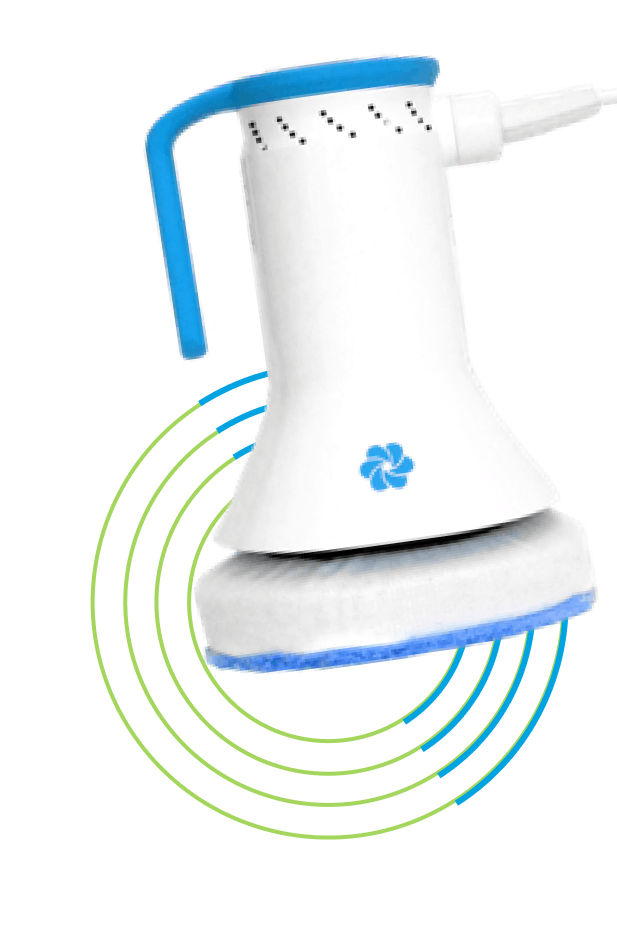8 Nutrients You Need Now
Feeling sluggish? Change your diet! These eight essential nutrients can help you beat fatigue, improve your overall endurance, and even help fight diseases.
It’s a given that food fuels our bodies, and if we don’t consume high-grade fuel, we can’t expect high level functioning. Eating healthfully not only helps us live longer by preventing chronic diseases such as heart disease, diabetes, and cancer, but it also boosts energy and mood, increasing our overall quality of life. In addition, a diet rich in whole foods promotes a healthy weight and even a good night’s sleep!
The first step to reaping the benefits of healthy eating: understanding which nutrients your body needs and how to get them every day.
Here are eight essential nutrients you need to augment your diet:
1. Magnesium
Every cell of your body needs this essential mineral for hundreds of biochemical reactions, including energy production, elimination of toxins, and muscle control, yet more than half of us aren’t getting the magnesium levels we need.
Symptoms of magnesium deficiency include low energy and fatigue, weakness, nausea and vomiting, loss of appetite, numbness, cramps and seizures, as well as irregular heartbeat and high blood pressure.
While magnesium is mostly found in plant-based foods, most Americans are eating diets heavy in processed foods and aren’t getting enough of this vital nutrient. Add to that, people who suffer from chronic stress or use some prescription medications may be depleting their magnesium stores.
Dietary sources rich in magnesium include beans and peas, leafy green vegetables, including spinach, whole grains, seeds, and almonds.
2. Omega-3 Fatty Acids
Many people attempt to reduce the intake of fat from their diet, however, not all fats are “bad” fats. Long-chain omega-3 fatty acids have been shown to stave off inflammation, which is believed to be the root cause of many diseases, especially those that affect the heart and brain.
Symptoms of omega-3 deficiency include poor memory, fatigue, heart problems, mood swings and depression, dry skin, as well as poor circulation.
Dietary sources include salmon, as well as other fatty fishes, pasture-raised meats and eggs. Vegetarians and vegans take heart! Seeds, including chia, hemp, flax, and walnuts are excellent sources of omega-3s.
Note: Because of the critical importance of the omega-3 fats, both meat-eaters and vegetarians alike should consider supplementation. When looking for a high-quality supplement, be sure to either consult a medical expert or visit a trusted site that conducts independent testing of supplements.
3. Iron
The World Health Organization deems inadequate iron intake the number one nutritional deficiency in the world. Without iron, our red blood cells can’t transport oxygen from our lungs to our organs and cells. Most often associated with anemia, iron deficiency can cause problems long before it reaches that state.
Iron deficiency can be caused by many different issues, including heavy menstruation, over-eating of processed foods, lack of red meats in our diet, and even by participating in endurance sports on a regular basis.
Symptoms of deficiency include fatigue and low energy, shortness of breath, cold hands or feet, fast heartbeat, as well as compromised immune function. Emerging research has shown that less-than-optimal iron levels can also have an effect on our brain, affecting memory, attention, and learning.
Foods rich in iron include red meat, pork, poultry, seafood, beans, spinach, and dried fruits such as raisins and apricots.
4. Vitamin E
Vitamin E is a powerful antioxidant that helps fight free radicals known to accelerate aging and disease progression. Vitamin E also helps promote a healthy immune system by warding off bacterial and viral invaders and even helps fight cancer.
Symptoms of vitamin E deficiency include gastrointestinal diseases, hair loss, age spots, muscular weakness, slow tissue healing, decreased sex drive, and leg cramps.
Add these foods to your diet to get the vitamin E you need: Green leafy vegetables, sunflower seeds, nuts, particularly almonds and hazel nuts, whole grains, soy beans, pumpkin, and egg yolks.
5. Vitamin D
Also known as the “sunshine vitamin”, vitamin D is an essential nutrient required by the body for the absorption of calcium, bone development, immune functioning, and alleviation of inflammation. Studies have shown that vitamin D helps fend off a wide array of ailments, including diabetes, depression, cancer, multiple sclerosis, heart disease, and chronic fatigue. While our bodies produce vitamin D when we spend time in the sun, three-quarters of all Americans are vitamin D deficient.
While spending time in the sun and absorbing UVB rays directly through your skin is the best way to get vitamin D, it’s not always easy to get the sunshine you need.
Fortify your diet with vitamin D by adding oily fish including trout, smoked salmon, and mackerel, as well as pork, portobello mushrooms, tofu, hard-boiled eggs, soy milk, and almond milk.
Supplements. Emerging research suggests supplementation is the most reliable way to achieve optimal vitamin D levels. As always, be sure to research supplements that go through trusted third-party testing.
6. Iodine
While iodine is critical to thyroid function, up to 74% of the world population do not consume adequate levels of this mineral. Needed to make thyroid hormones which convert food into energy for our cells, emerging research suggests that iodine also plays a key role in maintaining cardiovascular health. In addition, iodine deficiency has been linked to various forms of cancer, including breast, stomach, and thyroid cancer.
Symptoms of deficiency include weight gain, low energy, depression, as well as cognitive decline.
Dietary sources of iodine include iodized salt, saltwater fish, shrimp, and other seafood as well as some dairy products.
7. Calcium
Most of us know that calcium is essential for healthy bones, however, new evidence suggests that calcium also protects the heart and arteries. It appears to lower the risk of breast cancer and may guard against other forms of cancer, too.
Symptoms of calcium deficiency include memory loss, muscle spasms, numbness and tingling in the hands, feet and face, and depression.
Top Food Sources: Milk and milk products such as yogurt, calcium-enriched tofu, calcium-fortified orange juice, fortified cereals, and low-fat cheeses such as ricotta.
8. Water
Most people do not think of water as a nutrient but it is, and by far the most important one. Every life-giving and healing process that happens inside our body happens with water.
From regulating all bodily functions, including aiding in digestion and elimination and regulating body temperature, water is essential for life. A natural remedy for many ailments, water relieves headaches and constipation, fights fatigue, promotes healthier skin, and even reduces our risk of cancer!
Need a quick boost of energy? Employ the healing power of H20! Experts recommend a minimum of six 8-ounce glasses of high-quality water per day; more if you’re working out or live in a hot climate.
Note: You can tell you‘re well hydrated when you don’t feel thirsty and your urine is light-colored.






